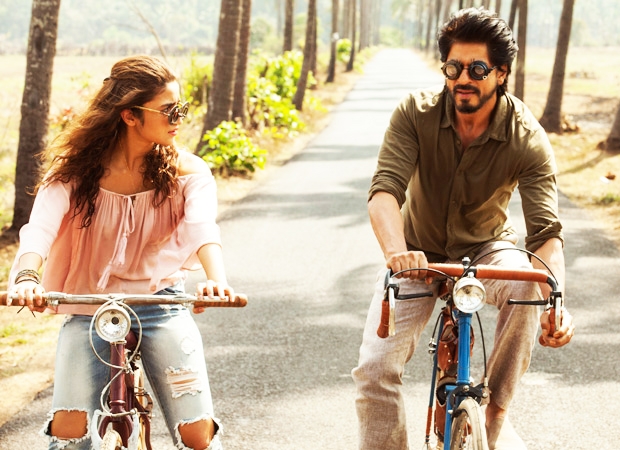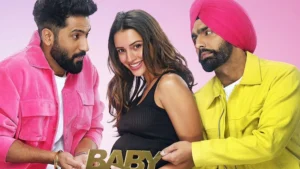
No, speaking about mental health isn’t fashionable yet. Unless you happen to be a Deepika Padukone or Ileana D’Cruz with a Vogue magazine writing on your revelation. The stigma attached is tremendous and most of it stems from one’s own self.
“Do I need a shrink? Well, I know what he’s going to say!”
“I don’t need a second person to give me life lessons…”
“If people could convince me, I’d have been a long time ago.”
“This is just a passing phase…”
“Log kya sochenge!”
Gauri Shinde’s second directorial, Dear Zindagi vaguely addresses this ‘inner struggle’ before quickly plunging into its gyan tempest. Gyan, in the well-meaning sense. Taking off on a lazy note, Dear Zindagi‘s protagonist is a supposedly routine urban girl. Kaira (Alia Bhatt) seems talented, self-sufficient, is good-looking and has a fashionable job too. She works with the biggest of Bollywood stars whom her relatives are in awe of. Still, we get the get-a-real -job cliche. Need we address all parenting stereotypes in one film, Ms Shinde? Ditto for the done-to-death landlord and single girl face off. Moving on, the film picks pace once the need for a ‘Brain ka doctor’ is addressed. She accidentally spots the charming (what else can he be?) Dr. Jehangir ‘Jug’ Khan (Shah Rukh Khan) address a talk. For someone as prejudiced as we all are, what could have drawn Kaira in consulting him? His easy demeanour, fellow-distressed-jeans-wearer charm or probably just his innate appeal. Kaira begins therapy with Dr. Jug and the film turns far more watchable.
Kaira and Dr.Jug’s interactions often pick on the former’s pedestrian sense of humour. Quite an irony as the film’s humour is as uninspiring as Anupam Kher’s tweets. It feels as if they have been injected at the last moment as the producer suggested ‘comic relief’. Nevertheless, the story progresses despite a narrative burdened with quotable quotes.
Anyhow, what works in favour of Dear Zindagi are the characters and their routineness. Kaira, her interaction with her pals and men, the dysfunctional family angle – all of it have a tint of originality. Focusing more on the latter, the shrink tells her it is okay to confront one’s parents. In a slightly staged scene, we have Kaira burst into a Highway-like fit (though less dramatized) when someone mentions parenting is one worth a Padma Bhushan. With spot on dialogues and Bhatt’s terrific delivery, this one hits all right chords. We also see how she has evolved over the years, having faced bad parenting, abandonment etc before (in films, that is 😉 ). Evolved, not improved, because Bhatt any day was a fine performer albeit some lovable rookie rawness in initial films. While all of this works, the flashback scenes with the letter-writing six year old looks tad too manipulative.
Yet all of it is vindicated as Dr. Jug says, “Keep grudges, but do look at your parents as regular beings for once. They too make mistakes.” Many of us do remember such childhood resentments but fail to see the larger picture.
The relationship bits too, more or less, work. Kunal Kapoor’s Raghuvendra convinces us with his everyman normalcy. The news of his engagement, somehow, is half-baked. Shinde adds some fine touches with a random product on a supermarket shelf. If it were brand placement, many are going to pick up Ragu sauces unlike the super-forced eBay integration. Coming back to Kaira’s men, her episode with the ‘oh-so-perfect’ restaurateur Sid (Angad Bedi) is brief and sensible. The third in the loop the dreamboat musician Rumi (Ali Zafar) whose surreal screen presence competes with Goa’s quaintness. Reflectively, these men arrive at different phases of Kaira’s life and her takeaway from each of them is never the same. Especially in the musician one, we see firm decisiveness in her. She leaves him the moment he starts seeking her approval in flaunting his actual self.
Among other interesting touches, we have Goa lending the much-needed composure to the plot. Unlike Bhatt’s recent Kapoor and Sons, we don’t feel laboured with its pretty location adding nothing to the subject matter. Laxman Utekar’s cinematography is impressive as he lets his actors and surroundings breathe. The colourist does an equally swell job on Utekar’s frames. Amit Trivedi’s music is tad boring, until Ali Zafar turns up to mesmerize with his voice. His background score reuses far too many pieces from English Vinglish to even consider.
Dear Zindagi also contradicts itself in parts. In an initial conversation, we hear why one shouldn’t stereotype the ‘software types’ for their profession as Fatty’s (Ira Dubey, fantastic) husband is one and they have the most wonderful conversations. In the latter half, we meet a prospective suitor Suresh (pronounced with an American twang) – a techie and every bit of the cliché. Say what?
Nevertheless, the film works quite well for its breezy, feel-good mood and unquestionable intentions. The revelation in the pre-climax comes as a jolt, for sure. Trust Khan and Bhatt to nail this conversation with great maturity. In perhaps the most powerful scene out there, we see one of the most awkward conversations written and delivered in style. Yes, we did notice the chair that creaked. Adding more to the chair metaphor, Dear Zindagi ends with Kaira meeting someone who manufactures them. His physical desirability, anyway, is secondary in Gauri Shinde’s scheme of things! *wink*
Rating: ★★★
P.S.: The film, definitely, is a far better product that what its pretentious promos suggests otherwise.

